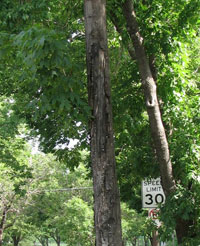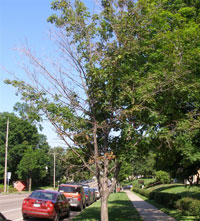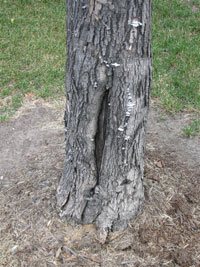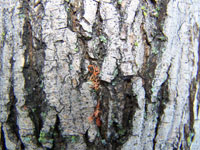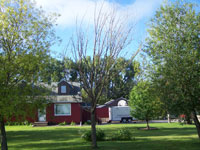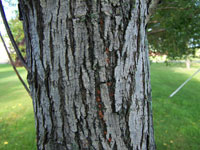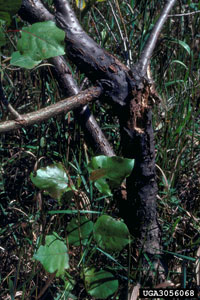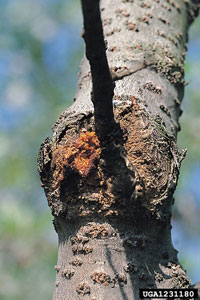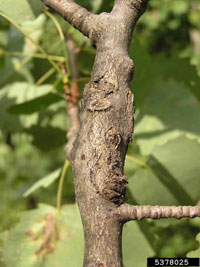Extension > Garden > Diagnose a problem > What's wrong with my plant? > Deciduous Trees > Willow > Cracks in bark or sunken areas of trunk
Willow > Trunk/Branches > Cracks in bark or sunken areas of trunk or branches
1 of 3
Sapwood rot
Schizophyllum commune, Cerenna unicolor, Trametes versicolor
- Dead branches within the canopy
- Yellowing to brown leaves may be present
- Groups or rows of small (
- Schizophyllum shelf fungi are white and appear fuzzy on top
- Cerrena fungi are white to greenish grey and have concentric rings on the surface
- Trametes shelf fungi are tan to brown with darker rings
- Wood below fungal shelves is yellowish to white, spongy, crumbly and decayed
- Bark around fungal shelves is killed and often falls off
- Common on trees stressed by drought, winter injury, wounds, mechanical injury or other factors
- More information on Heart rot
2 of 3
Valsa canker
Valsa sordida
- Leaves on random branches wilt, turn yellow then brown
- Random dead branches seen throughout the canopy
- Sunken irregulary-elongated cankers with cracked bark at the edges occur on branches or the main trunk
- On thick barked trees, cankers may not be visible
- In wet weather curled tendrils of orange spores emerge from pimple-like fungal structures within infected branches
- Common on trees stressed by drought, winter injury, wounds, insect feeding or other factors
- More information on canker
3 of 3
Poplar and willow borer
Cryptorhynchus lapathi
- Frass pushed out of openings in wood
- Sap seeps from openings
- Trunks become crooked and misshapen
- Random shoots sprout along deformity
- Damage most common on willow and poplar (except for quaking aspen), particularly young trees 1"- 4" diameter
- Larvae are C-shaped, cream-colored and approx. ¼ inch long
- More information on Poplar and willow borer



